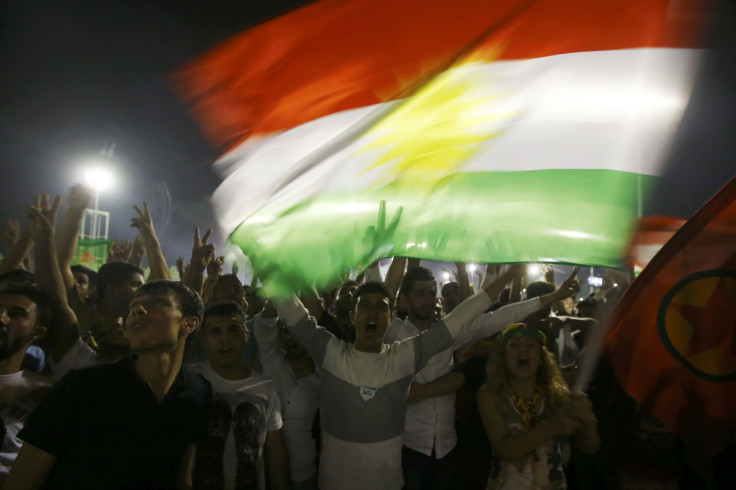Turkish Government In Limbo As Political Uncertainty, Market Drop Follow Election

Turkey’s government entered into a state of limbo following Sunday’s elections, as the ruling Justice and Development Party (AKP) lost the absolute majority of Parliament seats it had enjoyed throughout its 13-year rule, and the vote scotched an attempt by President Recep Tayyip Erdoğan to give himself sweeping executive powers. Now, a coalition, a minority government and early elections are all possibilities, as the Turkish lira fell against the dollar in the most visible market reaction to the vote.
Deputy Prime Ministers Bulent Arinc and Numan Kurtulmus, two leaders of the AKP, said Monday in Ankara that the party would prefer a coalition government to a return to the polls. In his first public statement following the results, Erdoğan echoed a similar sentiment, saying no party had one enough votes to rule alone, and encouraged all parties to work together to preserve stability in the country.
“Our nation’s opinion is above everything else,” Erdoğan said in his first public reaction to the parliamentary elections.
As of Monday afternoon in Turkey, the AKP, which won 40.86 percent of the votes Sunday, had not announced its official stance on forming a coalition government, leaving the future of Turkey’s government in a state of uncertainty. The party has 258 seats, short of the 276 needed for a majority.
It is still unclear what a coalition government would look like as the political parties in Parliament have opposing stances on social and economic issues. On paper, the AKP matches up most closely with the Nationalist Movement party (MHP), which garnered 16.5 percent and 80 seats. But the MHP is known for its hostility to Kurdish issues in the country, and any alliance with the AKP would likely stall Erdoğan's pursuit of a peace deal with Kurdish rebels.
A second option for a coalition government would be a partnership between AKP and the pro-Kurdish Peoples’ Democratic Party (HDP), which passed the 10 percent threshold needed to enter Parliament and also has 80 seats. It is the first time the party has won enough of the vote to attain seats in Parliament. Although the two parties could enter into a coalition government, a key disagreement -- the HDP is critical of Erdoğan's authoritarian attitude -- could sink any deal between the two.
The biggest party after the AKP is the Republican People's Party (CHP), with 132 seats, but any prospect of an alliance with Erdoğan is at this point remote. Haluk Koc, the CHP spokesman, was quoted by Al Jazeera as saying that by delivering Erdoğan a blow at the polls, Turkey "has avoided a one-person dictatorship and a civilian coup."
That uncertainty was greeted by the markets on Monday with the Turkish lira down to 2.81 against the U.S. dollar, about 5 percent weaker than Friday's close of 2.66. With investors nervous about the political turmoil in the country, the BIST 100 index on the Istanbul stock exchange was down 5.7 percent in morning trading.
If the political parties fail to come to an agreement about a coalition government in the next 45 days, then elections might be the only option.
Although the AKP lost the majority, it is unlikely that Erdoğan will give up his quest for more power, transforming the presidency from a ceremonial office into an executive position. But the international view of who actually holds power in Turkey was exemplified Monday, when local media reported that after the election, Russian President Vladimir Putin called Erdoğan -- rather than AKP leader Ahmet Davutoglu, who succeeded him as prime minister last year and vowed to resign if the party did not win an outright majority.
© Copyright IBTimes 2025. All rights reserved.





















